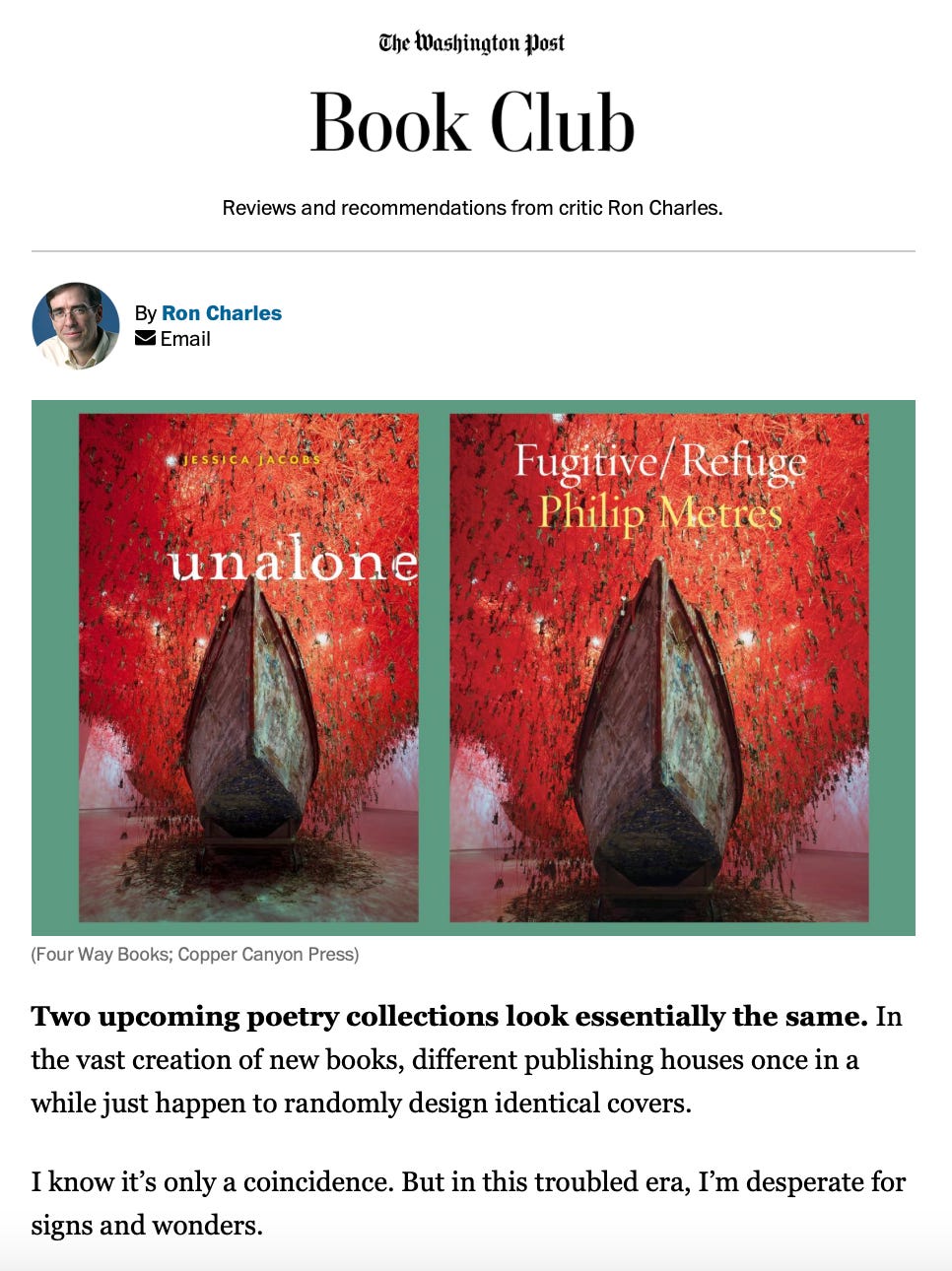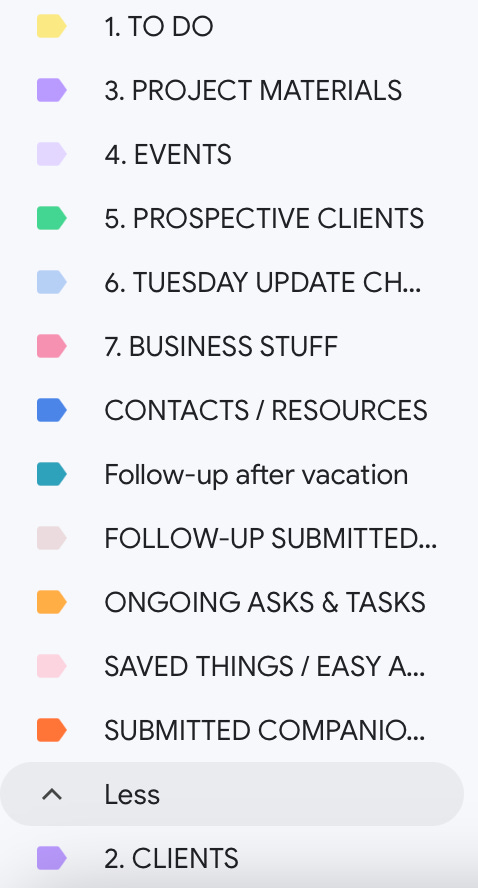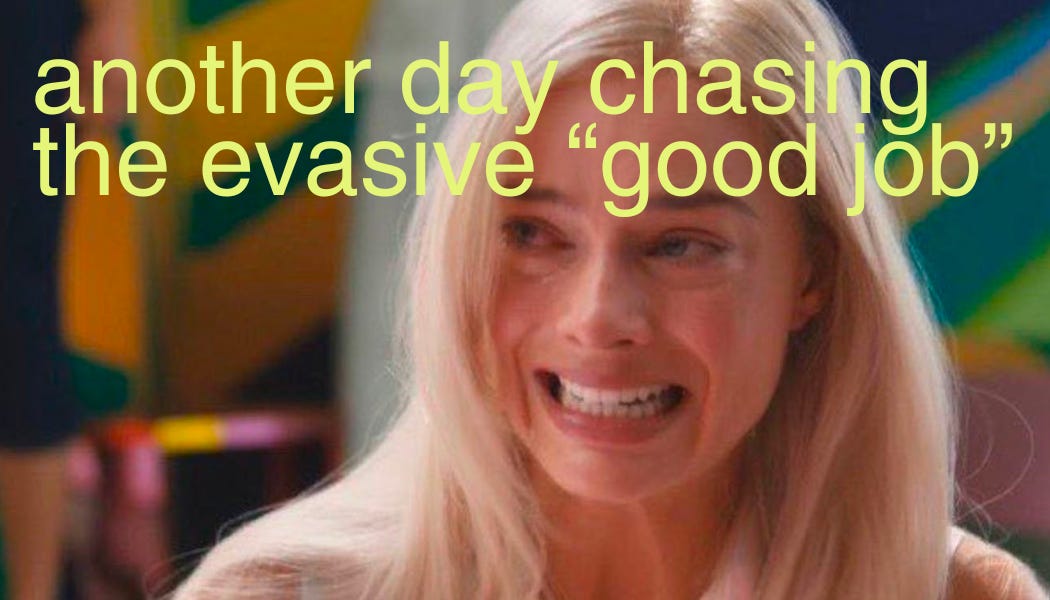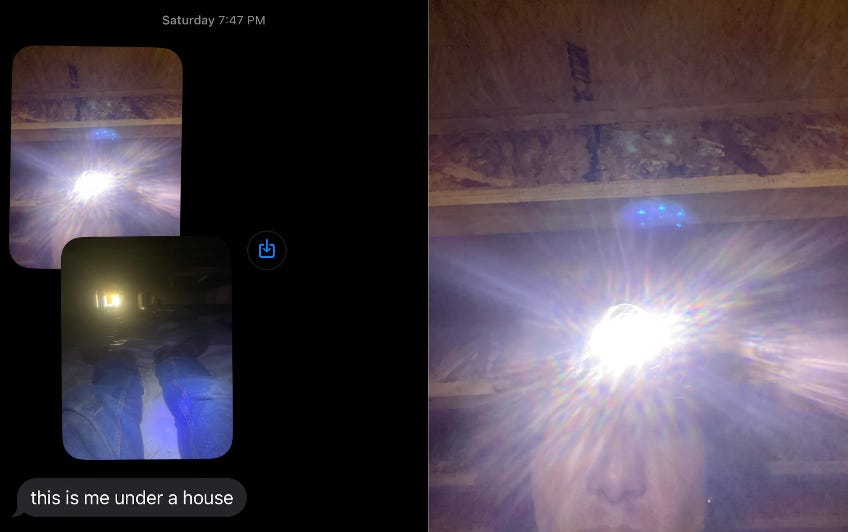A LONG GAME LEARNING CURVE
Things Zoe and I learned about book publicity in 2023.
After my first year teaching, my department head (who I love, shout out to Beth!) told me, “You didn’t know shit about the job in your interview, but you were so enthusiastic we hired you.” This little spark of enthusiasm has carried me for most of my life. I may not know what I’m doing, but I’m excited to be doing it. (About my partner, someone once said, “he has absolutely no rhythm, but he has so much enthusiasm.” So, you can see why we married each other).
When authors ask me on calls why Pine State is different than other publicity folks, I say various things depending, but most often what comes up is I’m willing to try anything—I, in fact, don’t know exactly what publicity is “supposed to” look like (I have never worked in-house for a publisher on the publicity side), so I don’t know what rules of the job I’m breaking or honoring. I’m mostly following a little gut magic.
But that means, with almost two years of Pine State (May!) under my belt, I learn new things about book publishing every year. So, here is a look at this year’s learning curve, both practical and not so much.
I thought we would start with a little heat. There are amazing reviewers and critics out there that start by reviewing independent books and placing reviews in literary magazines. Start small, you know? Then there is a moment, typically with a bigger-name author, where that reviewer’s status is raised (and perhaps this is the move from unpaid labor to paid), and they never look back. A reviewer of books who is at the point of reviewing say Sheila Heti or Moshfegh (literary household names?) is no longer reviewing many independent books, even if their career was jump-started by independent authors and magazines. My wish for 2024 is to see a more wide-ranging set of books receive criticism, especially from critics with “clout” who could convince an editor to give space. This is not to say that People Magazine is ever going to look at an indie—though Lizz Schumer is the best of the industry, but if you’re in charge of a list or assigning, look at the breadth of the books with which you’re assigning. I also understand that the goal is engagement, and a review of Sheila Heti is going to get more clicks than a review of debut-author-with-a-notable-best-American-essay, but a girl can hope.
Reviewers are also becoming more niched or categorized. And this is probably simply more interest in a specific sub-genre. For instance, I love seeing the focus on translation from Rebecca Hussey, or Kendra Winchester’s focus on Appalachia writers & writing. It’s not always this specific, but when looking at a critics published work, it’s more apparent their tangle of thematic interests.
Authors do not need #bookstagram. I said what I said. Unless you’re doing a speciality instagram (@taylorswiftasbooks), an instagram live with an account who has reach / engagement, or someone is making *multiple* posts and stories about their love of your book with fascinating reasoning, you do not need to send out 100 galleys for someone to post your cover with their coffee next to their color-coordinated bookshelf. We can let it go. (It’s also one of the impossible ways for independent books to match the marketing efforts of the conglomerates). I will say there are “bookstagram” accounts that aren’t just a regurgitation of the publisher’s copy and a photo of the book on a coffee table (@molsbymoonlight or @adastra_stories or @reggiereads), and those I do love.
A newsletter (hey, Substack!) is still the platform to convert readers to book sales. A newsletter audience is the most bought-in of any platforms, and the most likely to actually click purchase when you share book news. There is loyalty here. This does not mean you should start a newsletter as a book promotion tool. I have lots of thoughts on newsletters, but my main advice is a. you have to be offering something b. you have to be consistent c. the purpose cannot be “marketing” unless it’s a newsletter linked to your website with 32 followers which include seven family members and your second grade teacher. (My husband’s second grade teacher always says the nicest thing on his Facebook posts).
BUT we’ve had an influx of book people who are (rightfully) starting newsletters, and while they interviewed writers at say, Esquire, in the past, now they want to interview authors for their newsletter instead, which has it’s benefits and cons. (Esquire in some cases would be more helpful than someone’s newsletter, and in others, the newsletter is great. But you can’t build a great newsletter without great newsletter content, so I get it).
*A PSA: if you do receive a galley ahead of time from a publicist and you liked the book but don’t have the bandwidth to review it or interview the author, might I suggest dropping a review (you don’t have to star the book) on Goodreads, Storygraph, Amazon, etc. It’s so helpful for the longterm life of the book and for the algorithm to pick up that it’s a book that matters.
Most folks answer my emails at lunchtime or after 4pm.
Everyone lives in Brooklyn. It’s just time we recognize that Zoe and I being in North Carolina is weird to everyone we encounter in publishing. I’m not kidding. If you’re writing regularly about books for major publications, and probably throwing in some art and film criticism too, you’re in Brooklyn and you have a Cargo site. In the last year, you have probably written about a color (blue specifically), the internet, girl bosses (& all iterations), some hot take on the literary scene of Brooklyn, and at least one best friend + grief.
You CAN work from home IF you delete email apps from your DAMN phone. (Still learning work/life, work-from-home, how not to work 24/7 life). Everyone, EVERY SINGLE ONE, deserves rest and relaxation.
The writers want to know a good web designer before their book comes out. So, if you’re in that trade, please leave a comment.
As Zoe says, “I always button-up for WashPost.” We are still figuring out HOW to pitch WHO and WHEN.
All literary nonfiction is currently being described in announcements as “lyric prose, memoir, and cultural commentary.” And this is your sign, memoirists, that publishing is not currently buying (unless you’re a celebrity, influencer, writing into a timely cultural idea, or the next Tara Westover) books that are straight-up personal storytelling.
There’s something happening (been happening) that is simply people declining to review books outside of their identity. “Because I’m not _____, I don’t think I’m the best person to write about this book.” I have a few reasons for this, but my top two theories right now are fear (of cancellation?) and wanting to only support books that speak directly to ourselves.
A little bit of practicality here, you can label & sort your inbox. Seriously, this changed my life. And my inbox is prettier.
I had some STALE weeks where I thought, “okay, maybe nothing will happen for a Pine State author ever again.” (Currently our Buffer has 47 Instagram posts in the queue which is my logical reminder that we are doing just fine). I tell all our clients that there are going to be quiet months and the feeling will be “hurry up, then wait!” for most of the time we work together. But I need to tell myself that too.
Squeaky wheeling *does* work. Follow-ups always yield results. (Do not follow-up with a literary agent unless they specifically direct you to do so in their information). *squeak squeak, toot toot*
You’re better together. If you can figure out who might have a book coming out around the same time as you, or you have a cohort of authors you worked with during an incubator, class, or book club—you should work together to plug each other’s books. It’s double, triple, quadruple the community, it allows you to pitch conversations with each other, or reviews if your books have thematic overlap.
This is true for publicists and editors and everyone as well. Big ups to my favorite in-house publicists this year, Gabby (Norton) & Samara (OHU Press)! Working with you both was a dream.
I’m also such a better publicist when I decline a project that I know is not for me and recommend a publicist that feels like a better fit. I’m so much better at my job knowing there’s a Slack of us where I can ask what feel like silly little questions. I’m lucky there are so many other publicists I can call friends, Megan Posco, Sarah Russo, Alisha Gorder, and more. And when I’m in doubt, I ask. I don’t know half of it. Needing help is a good thing.
I can’t say that I don’t hold grudges, but I try really hard to only hold them when the person has given me three reasons to do so. There are very few people (two, literally) that I won’t ever pitch again. Don’t let one bad email turn you off of someone forever, but also no one has the right to speak unkindly to you over and over again. A practical reminder: they forgot about your email by that afternoon. (Unless they’re a Capricorn like me, and then I’m sorry I will remember what you said until well after my spirit state).
Transparency is still king. People (writers) really just want to have honest conversations, regular updates, and transparency about what’s happening. They want to collaborate on ideas, to understand the why behind the what a bit more, a publishing professional who can be a backboard for ideas and bigger pictures, and they (sometimes) want a go-between for their communications with the press.
Tell the folks you appreciate that you appreciate them. I can’t tell you how many emails I ended with “I appreciate you” this year.
Only people who believe in the hierarchy, support the hierarchy. If you go into publishing a book thinking you don’t want someone to review it because they’re below you (though you say it with something like “on my level”), or a bookstore isn’t “big enough” for you, or a blog / local newspaper isn’t worth your time (“it’s only the _________ after all”), or on my end—I think a client is too big (will be too big) to ever possibly want to work with me, you count yourself out of what could be incredible experiences and great publicity because of imposter syndrome or asshole syndrome. This is true for general publicity too, pitch it to the big places, you DO NOT KNOW WHAT CAN HAPPEN.
Publicists are not travel agents. We can help scheme, strategize, map out book tours, but you have to give us the right timing and dates and we have to be on the same page about how you’re traveling (city by city) if you want a major book tour.
For me, community is better for a writer than platform. Just because you don’t have 10k followers, doesn’t mean you don’t have the right folks in the right places to help with a publicity campaign. Your social media following is the least significant number for me when I’m thinking how to strategize publicity.
If you include your book in an essay that you want to publish alongside your book’s publication (we call these “companion pieces”) there are only a few (3) places that are going to be interested in that essay. If you’re writing a personal essay has only a personal thread (especially if it’s not timely), it will be harder to place that essay. If you write literary magazine essays (hermit crabs, heavy on the imagery and metaphor, stylistically funky) that is not the sort of thing I will be submitting on your behalf usually. If you write a 1500 word essay that is personal but timely, that does not mean it is an op-ed or that a major publication (re: newspaper / magazine) will want to publish it (length! personal! so many things that are like … ehhhhhh)
When you get the detailed author questionnaire from your publicity team, take that document *very* seriously. Zoe says, “tell me as much about the craft of the book as you do the subject. Pitches about process are some of the biggest hits we get on books.” We pull so many ideas from talking with authors or reading their weird little side notes about the book. Your weird side tangents, are our weird BREAD AND BUTTER.
The biggest lesson we learned this year: the whole world is not books. Zoe says, “sometimes it's also great to go to cookout with your little brother who doesn't think he's read 100 full pages of text in TWO YEARS, and just listen to him talk about installing windows &&&& sometimes that reminds you why you love books in the first place, that I get to then see the connections between this kid, and (our favorite client of the year award-winner) Brian Allen Carr, both of whom text people from underneath houses.”
It might be your whole world right now. But it is not the whole world.
As always, the Pine State calendar of events lives here. Request books for review & interview & feature here, add yourself to our reviewer list here, and buy our books here! You can also contact us through our website, Pinestatepublicity.com.
ICYMI: Beth Kephart was interviewed in Cleaver Magazine, Keep the Channel Open discussed Bianca by Eugenia Leigh, Jewish Book Council recommends unalone by Jessica Jacobs, Philip Metres and Jessica Jacobs are featured in Washington Post for being twins, Ross White and Kristine Langley Mahler are interviewed and reviewed in Tupelo Quarterly, Margo Steines’ Brutalities is a “Favorite Debut of 2023” at Chicago Review of Books and reviewed in Full Stop Mag, Creature, Wing, Heart, Machine by L.S. Mckee is reviewed in Chapter 16, Brian Allen Carr is interviewed in X-Ray Mag about Bad Foundations, Sean Enfield is a “can’t-miss” debut at Debutiful for December and reviewed in Southern Review of Books, and so much more on our Twitter & Instagram.














I enjoyed this morning "class". You always make it interesting and fun.
What a tour de force of how publicity works! Thank you for teaching us all about the landscape that’s forming for 2024. And thanks for the generous access to your Substack.